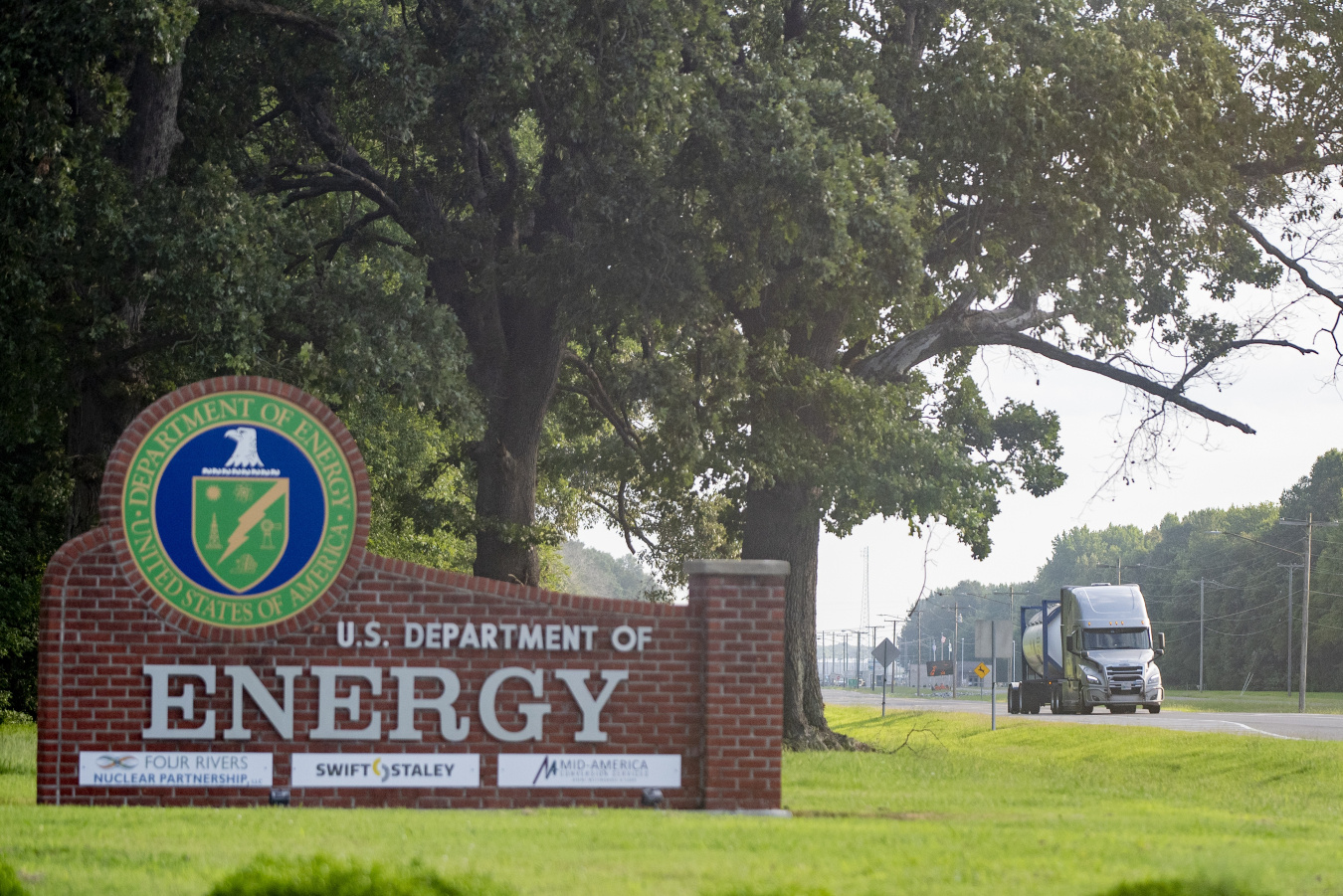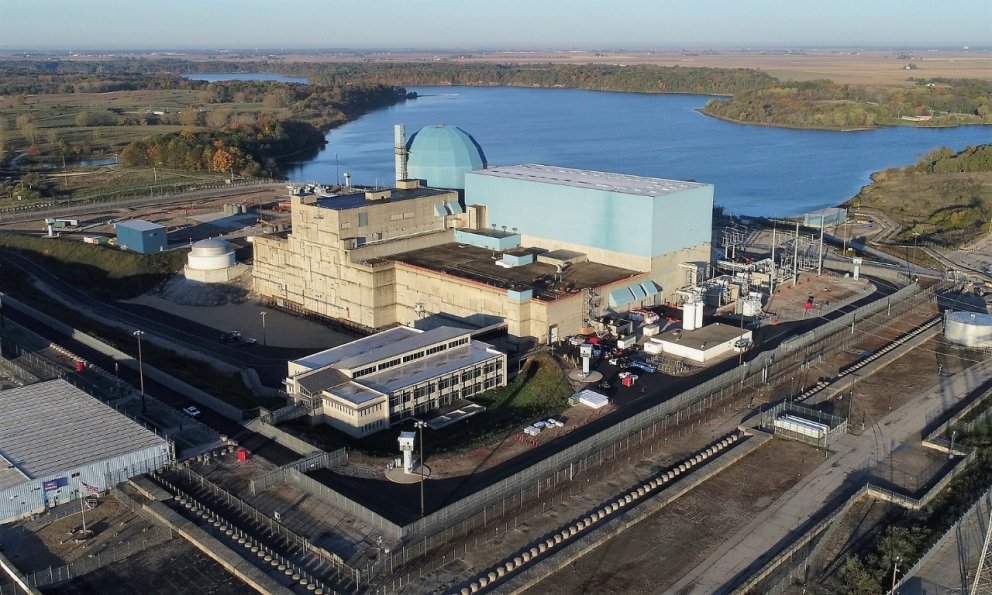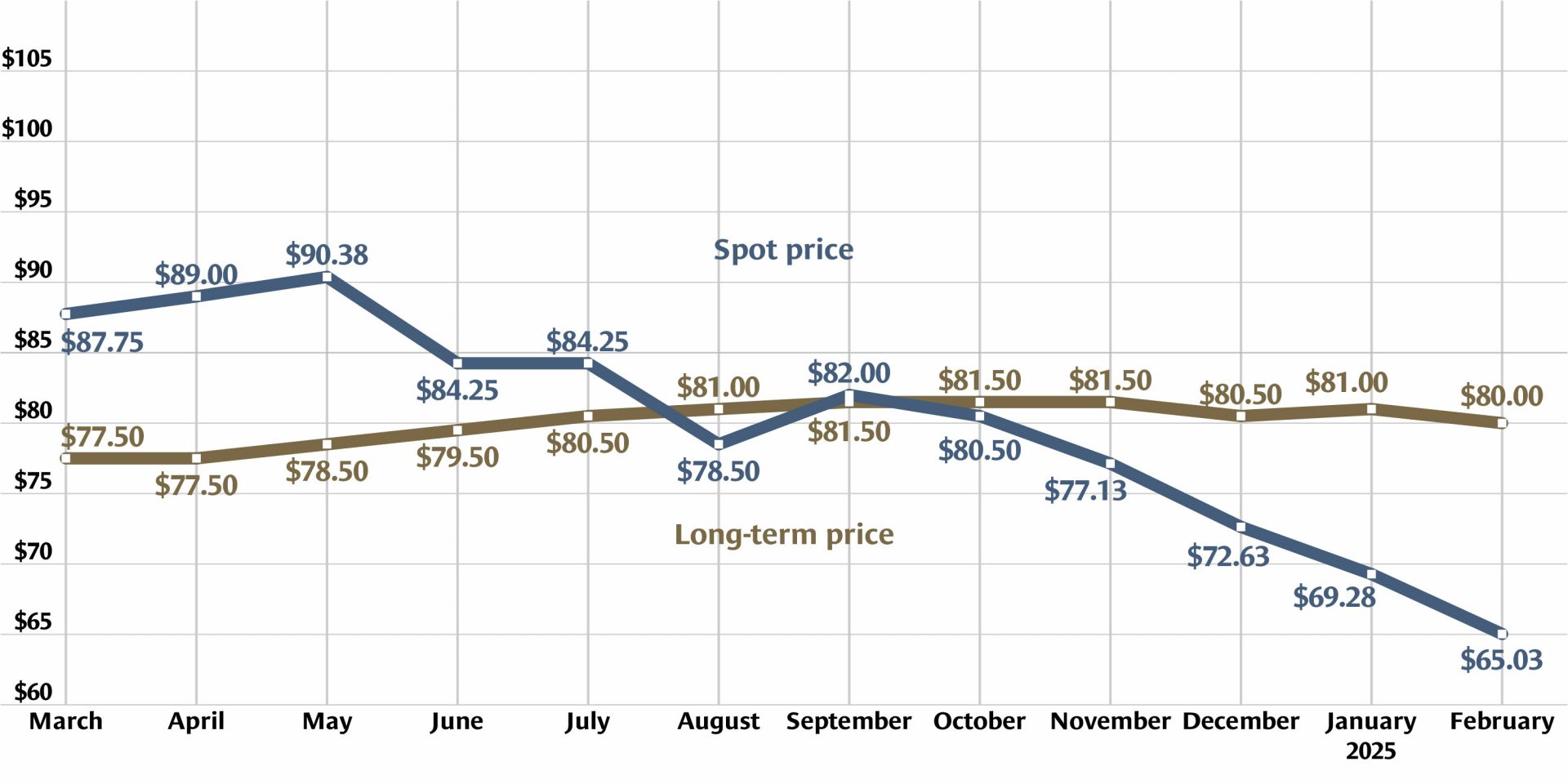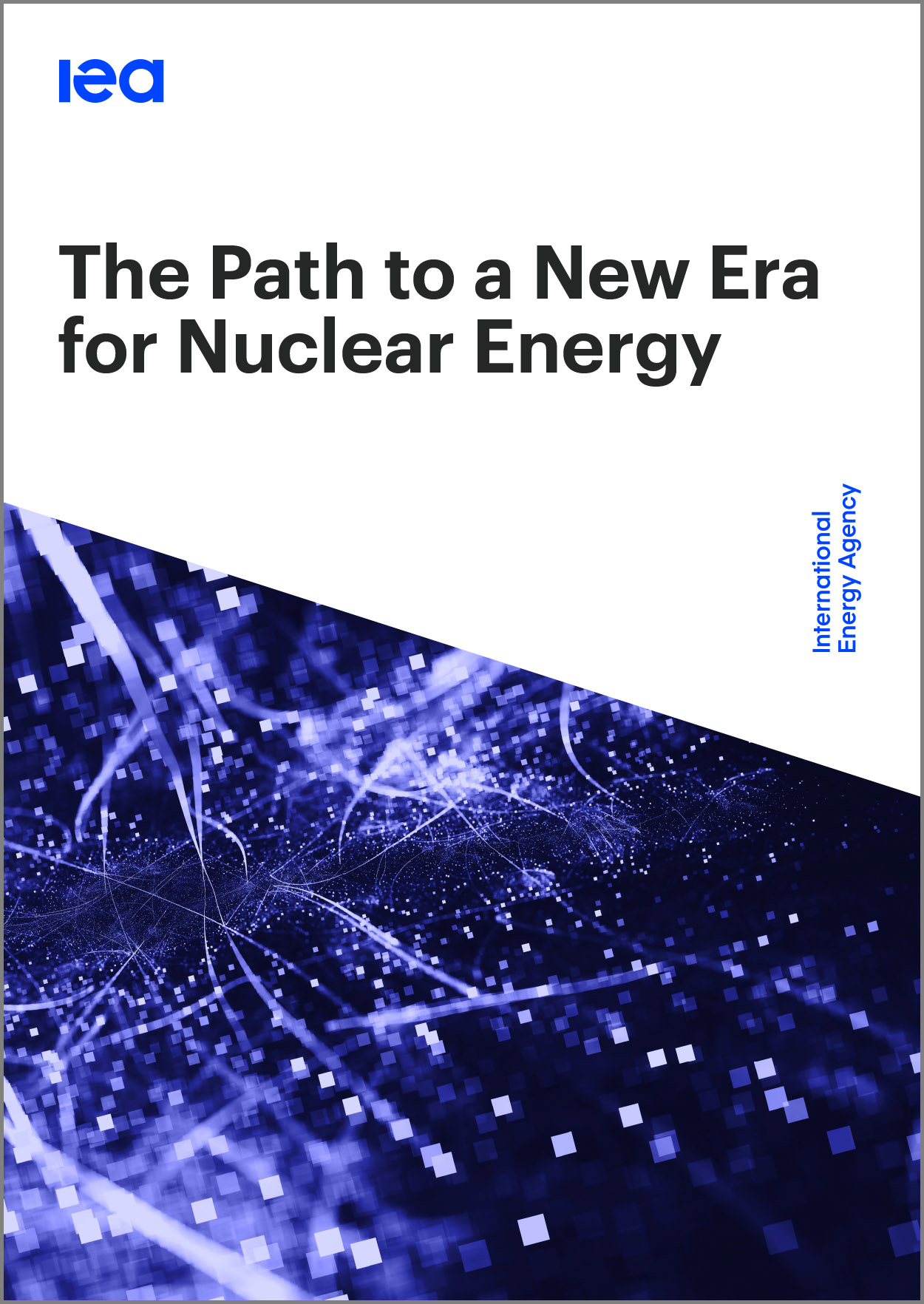The Paducah Site in Kentucky. (Photo: DOE)
The Department of Energy’s Office of Environmental Management has issued a request for offer (RFO) seeking proposals from U.S. companies to build and power AI data centers on the DOE’s Paducah Site in Kentucky. Companies are being sought to potentially enter into one or more long-term leasing agreements at the site that would be solely funded by the applicants.
Members of the Aalo team at the ground-breaking ceremony. (Photo: Aalo)
Eight days after Aalo Atomics released the details of its securing of $100 million in Series B funding, the company announced that it has broken ground on the 10-MWe Aalo-X. Sited in the desert beside Idaho National Laboratory, it will be the company’s first nuclear power plant, and it remains on track to go on line by July 4, 2026.
The Clinton nuclear power plant. (Photo: Constellation)
A recent article in the Chicago Tribune explores the benefits and potential drawbacks of the 20-year power purchase agreement (PPA) signed by Constellation Energy and Meta last month.
Artist’s concept of Fermi America’s planned power and data center campus. (Image: Fermi America)
Texas Tech University and Fermi America shared plans on June 26 to build “the world’s largest advanced energy and artificial intelligence campus” in Amarillo, Texas, near the Pantex nuclear weapons plant. Fermi America is a company cofounded by former Texas governor and energy secretary Rick Perry and his son, Griffin Perry, a cofounder and past senior advisor at Grey Rock Investment Partners. The announcement—a first press release from relative newcomer Fermi America—says the company “proudly answers President Donald J. Trump’s call to deliver global energy and AI dominance.”
Susquehanna nuclear power plant in Salem Township, Pa.
Talen Energy Corporation and Amazon have signed an expanded power purchase agreement (PPA) whereby Talen agrees to supply electricity from its Susquehanna nuclear power plant for AI operations and other cloud technologies at Amazon Web Services’ data center campus next to the power plant.


-3 2x1.jpg)












 The
The 